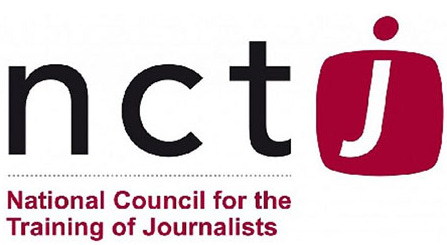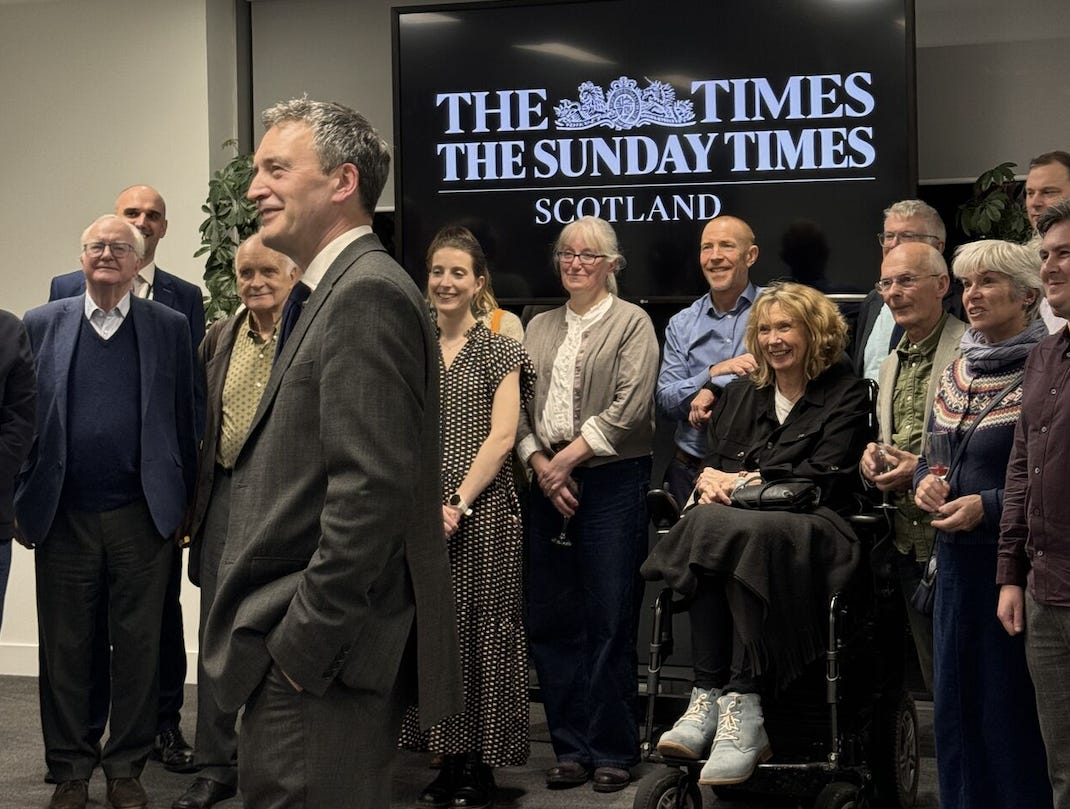Labour’s ‘Right to Switch Off’ plan poses challenge for breaking news
The death of former First Minster Alex Salmond was proof, as if any was needed, that breaking news does not respect a 9-5 working week.
Journalists used to working Saturday shifts know that four or five times a year the balloon will go up on a Saturday afternoon, as it did last weekend. In 2002, the Queen Mother died on a Saturday afternoon, and the following year the Space Shuttle Colombia disintegrated around the same time.
In 1997, it was in the early hours of a Sunday morning that a car carrying the Princess of Wales crashed in a Parisian tunnel.
Newsrooms up and down the country reacted to all these events: calling in staff, seeking reaction, updating backgrounders, planning special coverage, rescheduling bulletins and ripping up pages. It’s all hands on deck.
It’s also why news publishers and broadcasters are closely watching the new Labour government’s plans to give workers a new “right to switch off”, in which employers and managers would be prevented from contacting staff outside their contracted hours.
In its Next Steps to Make Work Pay consultation paper behind the proposed Employment Rights Bill, the government has outlined its intention to introduce the new restriction through a statutory code of conduct, potentially making out-of-hours contact illegal, presumably punishable by fines.
It is probably that contact will be allowed in exceptional circumstances, but the issue for news operations is that defining “exceptional” is not straightforward when events frequently happen at unexpected moments, but it is not cost-effective to keep workers on permanent stand-by.
Publishers and broadcasters are therefore likely to seek sector exemptions, should new restrictions come into force, rather than having to make exceptional circumstances justifications on a case-by-case basis.
Protection against AI scraping needed, says digital economy minister
The UK government’s minister for the Future Digital Economy and Online Safety has emphasised the importance of protecting news publishers’ creative rights against artificial intelligence companies scraping their content.
Speaking at the House of Lords’ Communications and Digital Committee last Tuesday, October 15, Baroness Maggie Jones said it was important to protect the rights of content creators, although she hoped deals could be struck between publishers and AI firms on the basis of “partnership and understanding”.
However, she also pointed to the draft AI Frontiers Act, set to come into force in the European Union in 2026 as an example of what might be possible. The new legislation includes maximum fines of up to seven per cent of global annual turnover, or €30 million.
The recommendations of the AI Action Plan to boost economic growth, headed by tech entrepreneur Matt Clifford, are also awaited, she said.
Her comments came after reports that the UK government was considering weakening copyright laws to permit scraping unless content creators opted out, rather than forcing AI firms to seek permission at a fair rate.
News Media Association CEO Owen Meredith said, “It is AI firms who should be required to 'opt-in' to allow for full transparency and fair remuneration for the use of creative content when training large language models.
“That is the way to promote growth and productivity from new technology while supporting the creative economy - which has been the engine of UK growth over the last decade.
“We cannot allow our IP rights to be weakened and allow AI firms to run rampant over creative content, which should rightfully be protected under copyright law.”
NI concern for news publishers
Of immediate concern to news publishers are now well-trailed plans by Chancellor Rachel Reeves to increase the employers’ National Insurance contributions, an unexpected increase in business costs at a time when commercial pressures are growing.
Most employers had accepted that Labour’s election manifesto assurance that NI would not increase applied equally to the employee and employer contributions, so the decision will saddle many businesses with an unbudgeted cost.
The NI issue is clearly not unique to news publishing, but the ongoing challenges in the sector, such as unexpected search engine algorithm changes mean the impact could be harder to manage, with price rises and belt tightening more difficult to avoid.
Health campaigns continue despite ad freeze, says Scottish Government
The Scottish Government has promised to continue with targeted health awareness campaigns this winter, despite the freeze on public sector marketing expenditure.
A letter to The Orcadian managing director, from the Cultural Futures and Major Events directorate said that “essential public health marketing activity in 2024-25 is continuing to raise awareness among key groups. Examples include Public Health Scotland targeted communications work for vaccine programmes, including Winter Flu.”
The letter also claimed that paid-for campaigns would continue for dementia, early cancer detection, sex assault response, and abortion safe access zones.
However, it added that marketing would continue through “low or no cost channels, such as social content, public relations and work with partner organisations.”
Newsbrands Scotland director John McLellan said: “We do hope there isn’t an expectation that our hard-pressed titles can simply publish Scottish Government messages while their revenues diminish.
“While our trusted titles will always carry stories based on their news value, there needs to be a fair exchange for the proven value they provide, particularly in reaching vulnerable groups in a fractured media landscape.”
NCTJ rescues axed Facebook jobs
Around 100 journalism jobs across the UK have been saved after the National Council for the Training of Journalists (NCTJ) stepped in with a £450,000 lifeline for the axed Facebook Community News project
Facebook owner Meta had funded the employment and training of over 260 regional reporters since 2018, but announced the end of the scheme last September, with about 100 jobs set to go by the end of the year.
Now the NCTJ is investing cash from its reserves in a new Community Reporting Fund and aims to secure additional future support from external partners.
Newsbrands Scotland director John McLellan said: “This is a brilliant intervention by the NCTJ, and it can only be hoped that other funding can be found to match this vital initiative.”
Read the full story on HoldtheFrontPage.
Scotsman in groundbreaking NYT deal
New Scotsman subscribers are to be given complimentary access to the New York Times and its sister sports publication, The Athletic, in a new deal with the giant US daily.
Publisher National World has announced that from this week anyone taking an annual digital Scotsman subscription will get a year’s unlimited access to the NYT.
Steven Chisholm, customer director for The Scotsman said, “We’re thrilled to offer our readers this unique opportunity. Accessing The New York Times alongside our award-winning journalism is a fantastic way to stay informed and inspired.
“With such a wide variety of news, insights, and stories available, we can’t wait to share this incredible content with our audience and help them see the world from new perspectives.”
Times writers meet their matches
News Scotland invited a dozen of The Times’s Scotland edition’s most valued commenters — the people whose posts are most recommended by others — to its Glasgow HQ last week, so Times writers could get to know some of the those who contribute below the line, and vice versa.
Over the whole thetimes.com site, readers make almost 19,000 comments a day, totalling about seven million a year. About 86 per cent of those who read an article look at the comments, and almost half of those readers go on to comment themselves.
Anonymised comments ended in December 2022 to help promote a highly engaged online community of readers, free of name-calling. Now 98 per cent of all commenters use a real name, from 37 per cent two years ago.
“Hostility and rancour has been replaced by reasoned debate”, The Times Scotland editor Magnus Llewellin (above, front) told the event, while writers Melanie Reid and Kenny Farquharson spoke about the need for robust debate without abuse.
Borders reader Penny Burgess found having opinions on sex, gender and women’s rights can have consequences in the offline world.
“My daughter had been pulled up by someone at school for one of my comments — I became P Burgess at that moment,” she said. “Whatever I write, it might be boring, or it might be wrong in some ways but it is my fault, so it seems right to put it under my name.”
Douglas Templeton, from Arran, agreed. “You are much more specific about what you write when you write under your own name and I felt that was the most honourable way to do it,” he said.
Linlithgow-based company director Will Carmichael said he wouldn’t debate on other platforms. “Twitter I saw as a security risk so I came off, and I’m only a passive viewer of Facebook,” he said. “This is very good, it’s great to meet people, to put the faces to the names.”
Golfers pitch in for advertising charity
News Scotland recently hosted the National Advertising Benevolent Society (NABS) Scottish advertising golf day and fundraising dinner at the picturesque Craigielaw Golf Club in Aberlady, East Lothian.
The day was a sell-out, showing the generosity of the 74 golfers and sponsors News Scotland, STV Group plc and StackAdapt in raising an incredible £12,000 for the advertising industry charity.
All proceeds from the event go directly to NABS, helping to improve the wellbeing of everyone in the advertising, marketing and media community.
“A heartfelt thank you to everyone who participated and contributed to making this day a memorable success,” said News Scotland managing director Richard Bogie.
New appointments
Alan Young has taken over as editor of The Scotsman after serving as the title’s news editor, head of content, assistant editor and deputy editor, having joined sister title the Edinburgh Evening News in 2003.
“I’m deeply honoured to be taking over at the helm of The Scotsman, a title which I love and which has been such a huge part of my life.
"Trusted, quality journalism has never been more important and I'm looking forward to working with the immensely talented team in the newsroom as we continue to grow and develop our content across all platforms."
Dale Miller succeeds Alan as deputy editor.
Lizzie Roberts has been promoted from news editor to Assistant Editor, News for The Times and Sunday Times in Scotland.
A former health correspondent with the Daily Telegraph, she joined The Times in June 2023, and her new title reflects the responsibilities she has taken on since joining the team in Glasgow.
Magnus Llewellin, editor of The Times and Sunday Times editions in Scotland said: "Lizzie is full of energy and ideas and has been a great addition, not just to our Scottish editions but to the titles in general."














